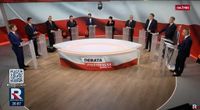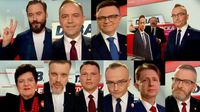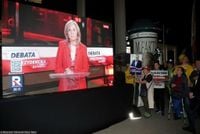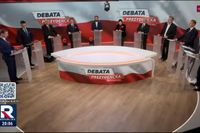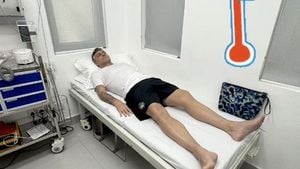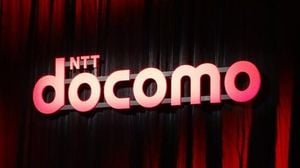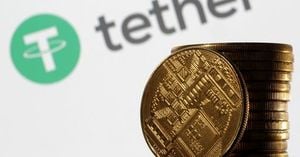The presidential debate organized by Telewizja Republika on April 14, 2025, showcased a range of candidates vying for the highest office in Poland, but notable absences and heated exchanges marked the event. The debate was attended by ten candidates, including Grzegorz Braun, Artur Bartoszewicz, Szymon Hołownia, Marek Jakubiak, Sławomir Mentzen, Karol Nawrocki, Krzysztof Stanowski, Joanna Senyszyn, Marek Woch, and Adrian Zandberg. However, two prominent figures, Rafał Trzaskowski and Magdalena Biejat, opted out of the debate, with Biejat commenting that Republika had 'long ago crossed the boundaries of civilized public debate.'
This debate, the third in the presidential series, was divided into thematic blocks covering crucial issues such as security, economic policies, healthcare improvements, and citizen participation in public life. Candidates faced tough questions about Poland's military stance and the adoption of the euro, revealing sharp divisions in their platforms. Most candidates, including Nawrocki and Mentzen, declared their opposition to sending Polish soldiers to Ukraine if elected, citing a lack of military preparedness in the country.
Karol Nawrocki, representing the Civic Coalition, emphasized his commitment to freedom in Polish media, stating, "As president, I will care for the freedom of the press in Poland." He further criticized the current government for its handling of media freedoms. In contrast, Joanna Senyszyn argued against high military spending, suggesting that a budget of 3-3.5% of GDP would suffice.
The debate also featured a memorable moment when Marek Jakubiak brought a cardboard cutout of Rafał Trzaskowski to symbolize his absence. He quipped, "In Donald Tusk's cardboard state, the cardboard Rafał Trzaskowski fits right in." This remark drew attention to the absence of two leading candidates and sparked discussions about their commitment to engaging with voters.
As the debate progressed, Sławomir Mentzen found himself under fire from both Szymon Hołownia and Adrian Zandberg, who challenged his positions and sought to undermine his claims to represent freedom. Mentzen's performance was criticized as he struggled to maintain his footing amidst the verbal onslaught. Braun, unexpectedly, emerged as a defender of debate standards, calling out the tactics used by his fellow candidates.
Notably, the candidates expressed a unanimous opposition to adopting the euro, with Grzegorz Braun stating, "Down with the euro, down with the euro collective. We must immediately start preparations to remove the omnipotence of Ursula von der Leyen from Poland." This sentiment resonated with many voters who fear losing national sovereignty to European Union regulations.
Healthcare was another contentious topic, with Krzysztof Stanowski controversially stating, "The National Health Fund is capable of killing a child in the ninth month of pregnancy faster than it can heal a person." His statement highlighted the frustrations many have with the current healthcare system, prompting calls for systemic reform. Meanwhile, Adrian Zandberg proposed legislation to increase healthcare spending to 8% of GDP, reflecting a desire for significant investment in public health.
As the debate neared its conclusion, candidates were asked about the number of genders, a question that sparked varying responses. Most agreed on the binary classification of male and female, but Senyszyn asserted that there are more than two genders, echoing sentiments from the LGBTQ+ community. Zandberg, in a more libertarian tone, remarked, "I don’t believe it’s the role of the president to impose what people should feel or think. Let people live as they wish."
The event drew significant viewership, with an average of 2.36 million tuning in to watch on Telewizja Republika, alongside 147,000 viewers on wPolsce24. This high engagement underscores the public's interest in the unfolding electoral landscape as the presidential election approaches on May 18, 2025.
In the aftermath of the debate, Tomasz Sakiewicz, the president and editor-in-chief of Republika, announced plans for another debate on May 9, 2025, hinting at a different format that could further engage voters. With the political landscape shifting rapidly and candidates jockeying for position, the upcoming weeks will be crucial for establishing momentum leading into the elections.
As candidates prepare for the next debate, the stakes are high, with the possibility of reshaping the political narrative in Poland. The absence of major candidates like Trzaskowski and Biejat raises questions about their strategies and the potential impact on voter turnout. With polls indicating fluctuating support levels, candidates must navigate these challenges carefully to secure their positions in the race.
